Practice Programming
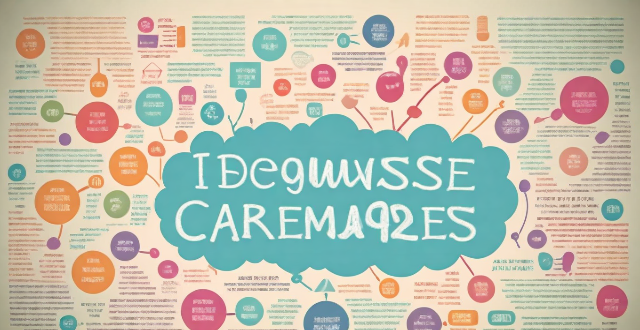
What are the best online resources for learning programming ?
The article discusses various online resources available for learning programming. It categorizes these resources into free tutorials, paid courses, and practice projects. The free tutorials include Codecademy, Coursera, edX, and Khan Academy, which offer interactive exercises, video tutorials, and quizzes to help learners practice their skills. Paid courses are offered by Udemy, Treehouse, Pluralsight, and Lynda/LinkedIn Learning, providing video tutorials, interactive exercises, and assessments. Practice projects can be found on GitHub, HackerRank, LeetCode, and Project Euler, where learners can work on real-world problems and improve their problem-solving skills. Overall, the article provides a comprehensive list of resources for those looking to learn programming online.

How can I find reliable and effective programming tutorials online ?
Finding reliable and effective programming tutorials online can be a daunting task, especially for beginners. However, with the right approach and tools, you can easily find high-quality resources that will help you learn programming effectively. Here are some tips on how to find reliable and effective programming tutorials online: 1. Identify Your Learning Goals 2. Use Reputable Sources 3. Look for Reviews and Ratings 4. Check for Updates and Maintenance 5. Practice and Apply What You Learn
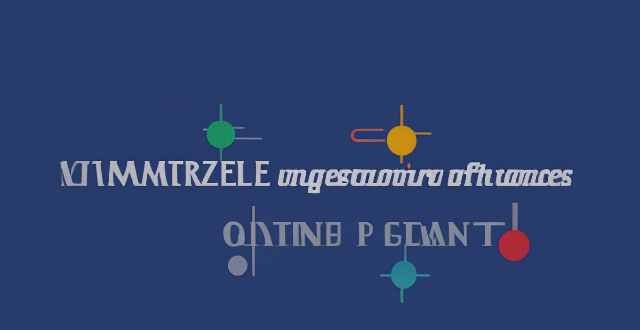
What are some reliable online learning resources for coding and programming ?
The text summarizes reliable online learning resources for coding and programming, including Coursera, edX, Udemy, Codecademy, Khan Academy, Pluralsight, LeetCode, and HackerRank. Each resource provides video lectures, interactive exercises, quizzes, assignments, and assessments to help learners improve their coding and programming skills. Some of the highlights of these resources include collaboration with prestigious universities, free access to most courses, personalized learning plans, and integration with popular development tools.

Are there any interactive platforms where I can practice programming skills ?
Interactive Platforms for Programming Practice: - Codecademy offers free courses, advanced paid lessons, and project building. - LeetCode provides coding problems, discussion forums, and contests. - HackerRank presents coding challenges across various tech domains. - Exercism features multilingual exercises with mentor support and community interaction. - Repl.it is a cloud-based IDE with multi-language support, collaboration options, and templates.

Can you recommend any good books for beginners to learn programming ?
Recommendations for Beginners to Learn Programming: 1. "Head First Programming" by Paul Barry - visual learning approach, covers basic programming concepts, includes exercises and examples. 2. "Automate the Boring Stuff with Python" by Al Sweigart - practical applications of Python, easy-to-follow tutorials, introduces automation and scripting. 3. "Eloquent JavaScript" by Marijn Haverbeke - focuses on web development, covers both programming fundamentals and JavaScript-specific topics, includes interactive examples and challenges. 4. "Learn Python the Hard Way" by Zed Shaw - hands-on approach to learning Python, emphasizes project-based learning, includes exercises and challenges. 5. "Programming: Principles and Practice Using Python" by Guido van Rossum and Barbara Beeton - comprehensive introduction to programming using Python, covers a wide range of topics, includes exercises and case studies.

Is it necessary to have a strong math background to learn programming effectively ?
Is it necessary to have a strong math background to learn programming effectively? Programming is a complex field that involves various skills and knowledge. One of the most common questions asked by beginners is whether having a strong math background is necessary for effective learning of programming. In this article, we will explore this question in detail. Mathematics plays a crucial role in programming, especially in areas such as data analysis, machine learning, and game development. However, it is not absolutely necessary for all types of programming. For example, if you are developing simple web applications or writing scripts to automate tasks, a strong math background may not be required. If you plan to work in fields like data science or game development, then having a good understanding of mathematics can be very beneficial. If you feel that your math skills are lacking, there are several ways to improve them through online courses, reading books, practicing problem solving, and joining study groups. With dedication and effort, anyone can improve their math skills and become an effective programmer.

How does machine learning differ from traditional programming ?
Traditional programming involves writing code for specific, predictableTraditional programming involves writing code for specific, predictable while machine learning focuses on adapt Traditional programs produce deterministic results and require explicit instructions for all scenarios, whereas machine learning models can generalize from examples and make predictions on new data. The development process for traditional programming involves algorithm design, debugging, and testing, while machine learning involves data collection, model training, evaluation, and tuning. Traditional programs may struggle with scalability and flexibility, while machine learning models can handle large datasets and adapt to changing patterns without manual code changes. Human involvement in traditional programming is active and clear, while in machine learning, it is passive and sometimes difficult to understand the decision-making process. The choice between these approaches depends on the problem's nature, data availability, and the need for adaptability and scalability.

Which programming language should I start learning first as a beginner ?
Choosing the first programming language to learn can be overwhelming for beginners due to the plethora of options available. However, there are certain factors that you should consider while making this decision. These include ease of learning, popularity and community support, application domain, and job prospects. Recommended languages for beginners based on these factors include Python, JavaScript, Java, and C#. The best programming language to start with depends on your goals, interests, and how you plan to apply your skills. However, Python and JavaScript are generally recommended for beginners due to their ease of learning and broad applicability. Once you've mastered the basics of programming with one language, you'll find it easier to learn others and expand your skill set. Remember, the key is to get started and keep practicing!

How do bootcamps compare to traditional computer science degrees in terms of learning programming ?
Bootcamps and traditional computer science degrees are two popular ways to learn programming. While both have their advantages and disadvantages, they differ in several key aspects: 1. **Learning Duration**: Bootcamps last a few weeks or months, while traditional degrees take four years for a bachelor's degree and up to two additional years for a master's degree. 2. **Curriculum and Coursework**: Bootcamps focus on practical, project-based learning of specific programming languages and tools, while traditional degrees offer a broader range of courses covering various topics such as algorithms, data structures, operating systems, and computer architecture. 3. **Cost and Financial Considerations**: Bootcamps are generally less expensive than traditional degrees, with tuition fees ranging from a few thousand to tens of thousands of dollars, while traditional degrees can be significantly more expensive. 4. **Career Opportunities and Outcomes**: Bootcamps prepare students for entry-level programming jobs quickly, while traditional degrees open up a wider range of career opportunities, including roles in research, academia, and management. The choice between a bootcamp and a traditional degree depends on individual goals, preferences, and circumstances.
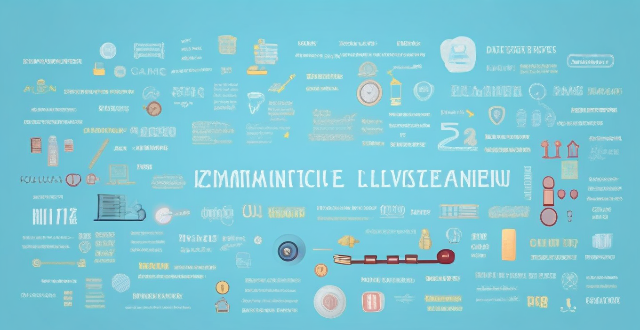
What programming languages are commonly used in educational game development ?
The text is about educational game development and the programming languages used. It lists some of the most commonly used programming languages in educational game development, including Python, JavaScript, Java, C#, UnityScript (C# variant), and HTML5/CSS3/JavaScript. The pros and cons of each language are discussed, along with examples of games that use them. The conclusion states that by choosing the right language for your project, you can ensure that your game is engaging, educational, and accessible to a wide audience.

What are some effective ways to practice social distancing in daily life ?
Effective ways to practice social distancing include staying at home as much as possible, keeping a safe distance from others, wearing a mask or face covering in public, washing hands frequently, cleaning and disinfecting high-touch surfaces, and following respiratory etiquette. These practices can help slow the spread of infectious diseases and protect individuals and communities.

What is the best way to practice speaking a new language ?
The article provides a summary of the best ways to practice speaking a new language, which include immersing oneself in the language, speaking frequently and without fear of making mistakes, practicing regularly, focusing on pronunciation and fluency, and learning through real-life conversations. Consistency and practice are emphasized as key factors in improving language skills.
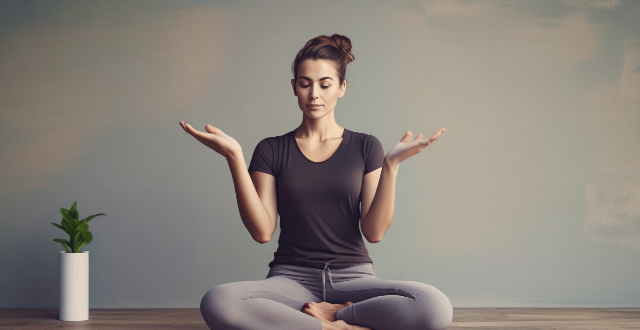
What is the best time of day to practice yoga poses ?
Yoga offers numerous benefits for both the body and mind. The best time of day to practice yoga poses varies from person to person, depending on individual schedules, preferences, and needs. Morning sessions can kickstart metabolism and improve mental clarity, midday practices can relieve stress and rejuvenate the body, while evening yoga can help relax and prepare for sleep. Consistency is key in any yoga practice, so find what works best for you and maintain regularity for optimal results.

How do professional athletes train and practice ?
Professional athletes engage in comprehensive training and practice routines to excel in their sports. Their regimens include physical conditioning through cardiovascular exercises, strength training, and flexibility practices. They also focus on technical skill development through repetitive drills, scrimmages, video analysis, and virtual reality training. Mental preparation is equally important, involving visualization techniques and sports psychology consultations. Recovery and regeneration strategies encompass proper nutrition, sleep habits, and active recovery methods like light exercise and massage therapy. These components all work together to ensure athletes reach peak performance while minimizing the risk of injury.
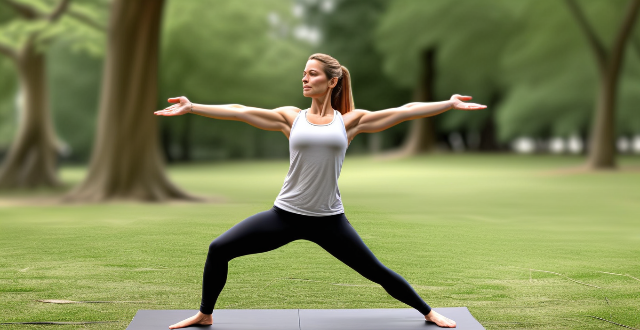
How often should I practice easy yoga poses to see results ?
The article discusses how often one should practice easy yoga poses to see results. Consistency is crucial, and beginners should aim for two to three times per week while intermediate practitioners can increase frequency to four or five times per week. Advanced practitioners may benefit from practicing six or seven times per week but should listen to their body and rest when needed. Quality is more important than quantity, and tips for maximizing your yoga practice include mixing up poses, using props, staying present, and practicing mindfulness.
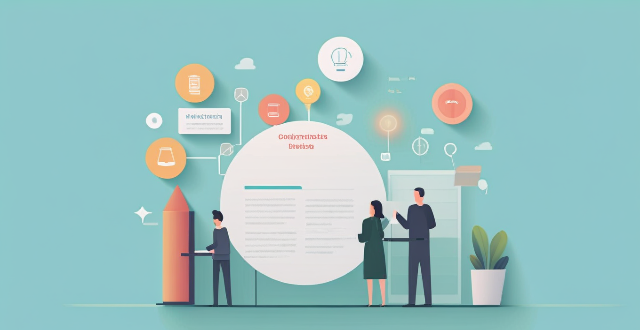
How often should I practice to see improvement in my golf skills ?
Golf improvement requires consistent practice, and the frequencyGolf improvement requires consistent practice, and the frequency your skill level, goals, and the frequency of your sessions depends on your skill level, goals, and availability. Assess your current skill level and set realistic goals to create a practice plan that includes both on-course and off-course activities. Beginners should aim for at least three practice sessions per week, while intermediates can do two to three and advanced players one or two. Make each session count by focusing on specific goals and tracking progress. Consistency is key, so stick to your practice plan and adjust it as needed based on your progress.

Can sports be considered a form of worship or spiritual practice ?
The provided text discusses the possibility of considering sports as a form of worship or spiritual practice. It explores the psychological and emotional benefits, community building, and mindfulness aspects of sports, suggesting that they offer experiences similar to those found in traditional spiritual practices. While sports may not be seen as a conventional form of worship, they can serve as a secular equivalent of spiritual practice, offering personal growth, connection, and inner peace.

How many times a week should I practice yoga poses to see results ?
Practicing yoga poses is an excellent way to improve your flexibility, strength, and overall well-being. However, the frequency of your practice can greatly impact the results you achieve. In this article, we will discuss how many times a week you should practice yoga poses to see noticeable improvements in your physical and mental health. Before determining the ideal number of yoga sessions per week, it's essential to consider several key factors: your current fitness level and experience with yoga, the amount of time you can dedicate to each session, and your specific goals (e.g., increased flexibility, stress relief, muscle building). By taking these factors into account, you can create a personalized yoga routine that suits your needs and helps you achieve your desired outcomes. For beginners, starting with two or three sessions per week is generally recommended. This allows your body to gradually adapt to the postures and prevents overexertion or injury. As you become more comfortable with the practice, you can gradually increase the frequency of your sessions. Once you have established a consistent yoga practice and gained some experience, increasing the frequency of your sessions can help you continue to see progress. For intermediate practitioners, aiming for four to five sessions per week is often beneficial. This allows you to maintain your current level of flexibility and strength while also challenging yourself to try more advanced postures and sequences. Advanced yogis who have been practicing for several years may choose to practice daily or even multiple times per day. This level of commitment requires a significant amount of time, discipline, and dedication but can lead to profound transformations in both physical ability and mental clarity. Regardless of how frequently you choose to practice yoga poses, there are several tips that can help you maximize the benefits of your sessions: set clear goals, mix up your routine, stay hydrated, and listen to your body. By following these guidelines and adjusting your frequency based on your individual needs and goals, you can create a yoga practice that leads to lasting improvements in both your physical and mental well-being.

How important is hands-on practice in personal safety training compared to theoretical knowledge ?
In today's world, personal safety training is crucial to ensure individuals can protect themselves from potential threats and risks. While theoretical knowledge provides a foundation for understanding these risks, hands-on practice is essential for effective training. Hands-on practice provides a realistic experience that allows individuals to apply what they have learned in real-life situations. It also helps develop skills that can be applied across various scenarios, reinforces learning, and builds confidence. Therefore, incorporating hands-on practice into personal safety training programs is crucial for individuals to develop the skills needed to respond appropriately to threats and risks in real-life situations.

Can regular practice with comprehension quizzes help in improving understanding ?
Regular practice with comprehension quizzes can improve understanding by enhancing reading skills, critical thinking, vocabulary, concentration, and confidence.

What are some common mistakes that new programmers make while learning to code ?
New programmers often make mistakes due to lack of planning, ignoring basics, code quality issues, misunderstanding language specifics, neglecting testing, overlooking version control, copying and pasting code without understanding, ignoring best practices, overcomplicating things, and not asking for help soon enough. To avoid these common pitfalls, new programmers should stay curious and humble, practice good programming habits, embrace iteration, use available resources, reflect on mistakes, and plan before coding. Making mistakes is part of the learning process, and the key is to recognize them, understand why they occurred, and ensure they become valuable lessons for future success.

How does meditation or mindfulness practice contribute to creative development ?
Meditation and mindfulness practices can significantly foster creativity by enhancing attention, increasing awareness, reducing mental clutter, promoting emotional regulation, stimulating neurological growth, fostering a growth mindset, improving sleep quality, encouraging self-reflection, providing incubation time, and enhancing collaboration. Incorporating these practices into daily routines can help individuals unlock their full creative potential, leading to personal growth and innovation in various fields.

How important is understanding algorithms and data structures when learning to program ?
Algorithms and data structures are essential for effective programming, influencing efficiency, performance, scalability, problem-solving ability, and interview preparation. Understanding them also lays the groundwork for advanced concepts and everyday tasks, making it crucial for programmers aiming for excellence in their field.

How does poor time management contribute to test anxiety ?
Poor time management significantly contributes to test anxiety by causing insufficient preparation, lack of practice, rushed review, fatigue, heightened pressure, diminished confidence, and mental health implications. To mitigate these effects, students should create a study timetable, establish regular study habits, ensure proper breaks and sleep, maintain a healthy lifestyle, and practice mindfulness and relaxation techniques.

What resources are available to help me practice and master math problem-solving ?
To master math problem-solving, various resources are available, including online platforms like Khan Academy and Mathway, books such as "How to Solve It" by Polya, and video tutorials from YouTube channels like Numberphile. Practice worksheets from websites like Math Drills and IXL Math can also aid in skill development. Regular and consistent use of these resources can enhance one's ability to solve complex math problems and build a strong mathematical foundation.

What should I do if I suspect I have a foodborne illness ?
If you suspect a foodborne illness, seek medical attention if symptoms are severe. Stay hydrated and get rest to aid recovery. Avoid certain foods, practice good hygiene, track your symptoms, and contact authorities if you think a food establishment is responsible. Prevention is key, so always practice safe food handling.

Can you suggest any resources or tools to help me practice swimming on my own ?
Swimming is a great form of exercise that offers numerous health benefits. If you're looking to practice swimming on your own, there are several resources and tools available that can help you improve your skills and technique. These include online video tutorials, mobile apps, books and e-books, and other resources. Online video tutorials can be found on YouTube channels such as Swim Lessons with Jenny, Swim University, and Swimming World Magazine. Websites like SwimOutlet's Learn to Swim Guide and Fitter and Faster also offer comprehensive guides with video tutorials. Mobile apps such as MySwimPro, Swim.com, and Coach's Eye offer personalized training plans, social platforms, and video analysis tools respectively. SwimLog and Swimtag are swimming logs and trackers that help swimmers keep track of their progress in the pool. Books and e-books such as Swimming for Dummies, The Complete Guide to Swimming, The Swimming Anatomy Book, and The Science of Swimming Faster provide detailed instructions on mastering different swimming styles, improving technique, understanding biomechanics, and scientific insights into improving speed and efficiency. In conclusion, utilizing these resources and tools can effectively help you practice swimming on your own and make significant progress in your skills and technique. However, always prioritize safety when practicing alone, and consider seeking guidance from a qualified coach or instructor if needed. Happy swimming!